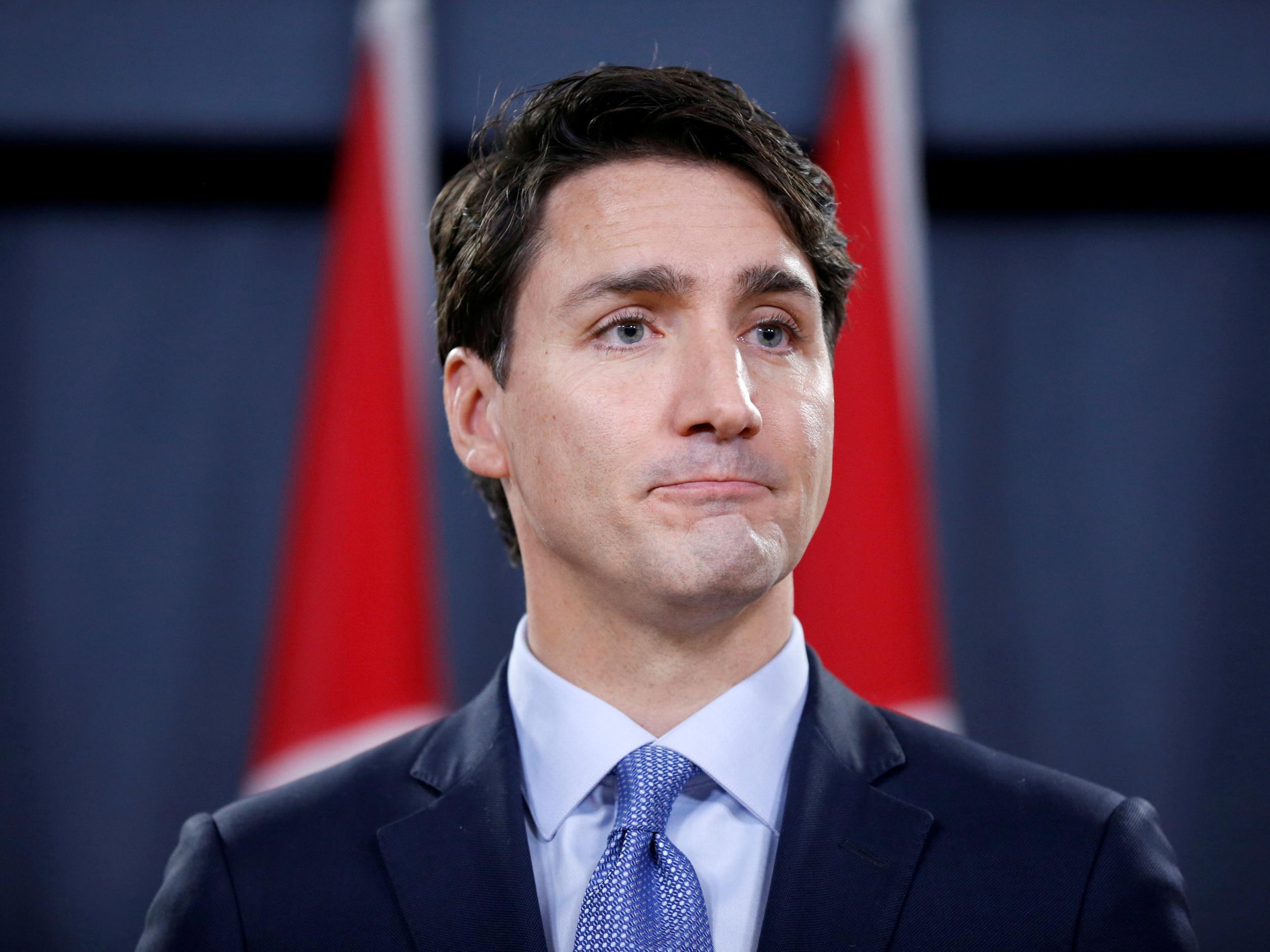By signing CETA with Justin Trudeau, the EU isn’t undermining Donald Trump – they’re helping him
A trade deal with Canada seems an urgent necessity in this brave new world. But, 40,000 of the biggest US corporations have subsidiaries in Canada which could use CETA to sue European governments

Your support helps us to tell the story
From reproductive rights to climate change to Big Tech, The Independent is on the ground when the story is developing. Whether it's investigating the financials of Elon Musk's pro-Trump PAC or producing our latest documentary, 'The A Word', which shines a light on the American women fighting for reproductive rights, we know how important it is to parse out the facts from the messaging.
At such a critical moment in US history, we need reporters on the ground. Your donation allows us to keep sending journalists to speak to both sides of the story.
The Independent is trusted by Americans across the entire political spectrum. And unlike many other quality news outlets, we choose not to lock Americans out of our reporting and analysis with paywalls. We believe quality journalism should be available to everyone, paid for by those who can afford it.
Your support makes all the difference.This week the European Parliament finally gets a vote on the Canada-EU trade deal CETA. It’s taken years to get to this point, and the vote is likely to be close, reflecting just how contentious global trade policies have become.
Many MEPs are worried about CETA, reflecting the views of millions of European citizens who have been lobbying them to vote it down. They are concerned about the impact it will have on food standards, public services and financial regulation. CETA, like its better known US cousin TTIP is all about deregulation.
There are deep concerns about the ‘corporate court’ system which will afford so many more corporations special legal process to sue European governments for passing laws they don’t like. For all the EU’s reforms, environmental regulation, public service nationalisation, financial regulation – all could be challenged, costing the taxpayer on both sides of the Atlantic a fortune.
Despite this, MEPs are wrestling over how to vote. Because in our brave new world, a trade deal with Justin Trudeau’s Canada, which shares so many of our values, seems an urgent necessity. Wouldn’t it be a reaffirmation of the very liberal international order threatened by Trump? Wouldn’t it help us bring together a non-Trump economic bloc?
It’s a seductive logic – and enjoyable to give Trump a poke in the eye. But it isn’t true. There’s nothing more helpful to Trump and the wave of European populism than passing CETA this week.
First CETA would open up Europe to direct challenge by US corporations in special corporate courts. Something like 40,000 of the biggest US corporations have subsidiaries in Canada which could use CETA to sue European governments. This is a game-changer – we’ve never faced anything like it, and we will get sued for simply passing laws aimed at protecting people and the environment.
Canadian’s big mining sector doesn’t have any higher ‘values’ than US big business either. These companies have already shown themselves more than willing to take on governments like Romania, in secret ‘courts’, under a separate deal, when that government saw fit to halt a mining project built on a site of environmental and historical importance.
For all his rhetoric, Trump is a firm supporter of deregulation and corporate power. A quick look at how US oil, financial, military and pharmaceutical stock rose after Trump’s election showed that clearly. Trump is stripping away corporate regulation at a frightening speed. Why would he be against anything that gives US corporations the power to bully foreign countries?
Don’t forget – Trump’s own interests are involved here. For example, Trump owns quite a lot of land in Scotland and has a history of challenging Scottish regulation which poses any threat to his golfing profits. A corporate court in CETA would help him in future.
Second, CETA has nothing to do with reaffirming European and Canadian values. As a matter of fact, it’s all about changing our values. CETA isn’t about people at all, but forwarding corporate interests to the point where ‘people’ barely feature in decision-making. CETA’s process of regulatory ‘harmonisation’ attempts to force regulators to think only about how laws can be as ‘minimally trade distorting’ as possible. Is that really the pinnacle of European and Canadian ‘values’?
Trump claims that corporations have become too mixed up with foreigners, too disinterested in forwarding the interests of the state. We cannot fight this with ‘more of the same’, by pretending that economic globalisation has been wonderful for everyone and let’s have more of it. The idea that trade deals create only ‘winners’ is totally discredited. But CETA assumes everything is ‘win-win’ and makes no provision for these losers - even though serious assessments warn that up to 200,000 jobs could be lost and workers relative wages could fall.
This simply helps Trump’s rhetoric about salvation to be found in the aggressive nation state, backed to the hilt by corporate power. How do we fight Trumpism? By showing that the solution to devastating corporate trade pacts isn’t ‘beggar my neighbour’ economics, but a trade system based on the needs of society – building public services, creating decent jobs, laws to constrain the most powerful exploiting the least powerful. Without this, everything that Trump represents will grow.
Join our commenting forum
Join thought-provoking conversations, follow other Independent readers and see their replies
Comments